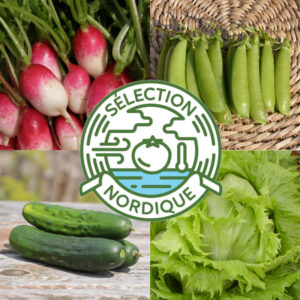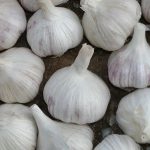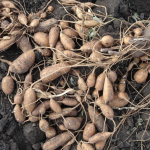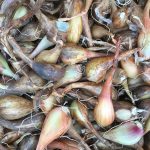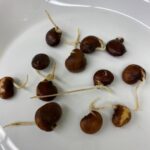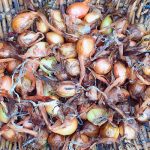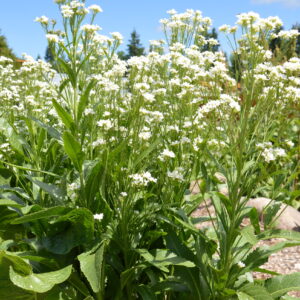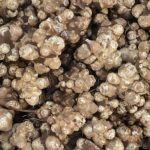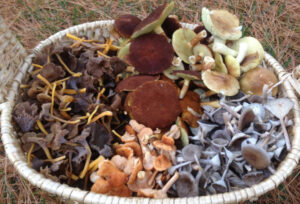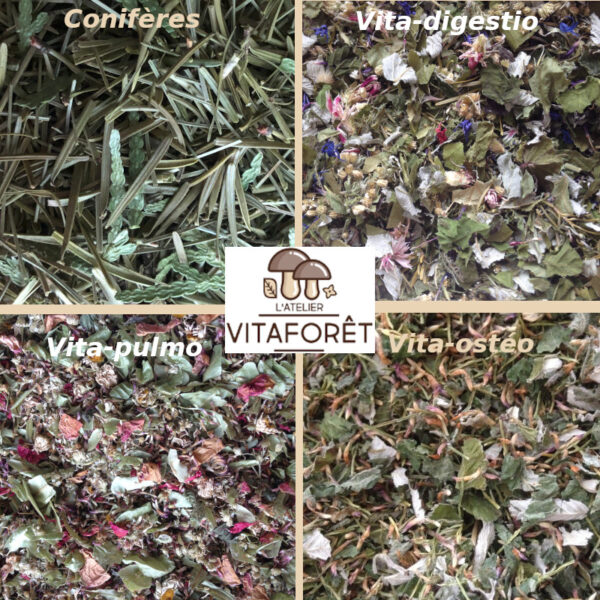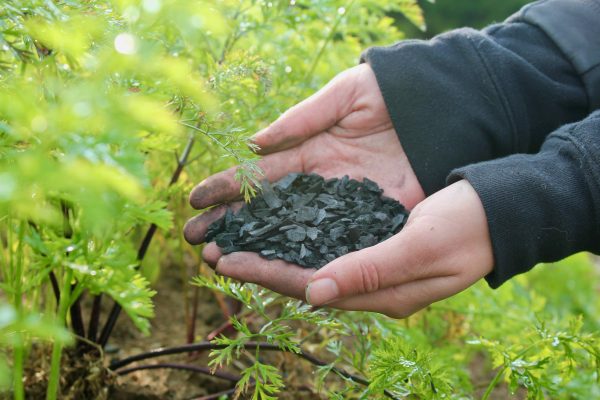Biochar FAQ
Frequently Asked Questions
Welcome to the FAQ of the Jardins de l’écumene Biochar system. If you have any additional questions or thoughts to share with us, please feel free to write to info@Biocharsysteme.com.
- What is Biochar? A vegetable charcoal for horticultural use. According to Wikipedia: “Biochar is a soil amendment resulting from the pyrolysis of biomass. It is used in agriculture to increase soil productivity, with Biochar acting to rehumidify soils, improve water retention and stimulate the immune system of plants. » Continue reading.
- What does Biochar do? The ultra-porous structure of Biochar (or charcoal for agriculture), acting like a sponge, very effectively traps nutrients, retains water and promotes the maintenance of microorganisms essential to living soil. Learn more?
- Where can I find them (2 kg and 5 kg formats) without having to pay transport costs? Find point of sale in Quebec.
- What if I want to order a large quantity? For flexible containers of 350 kg, write to info@Biocharsysteme.com.
- How much Biochar System should I put in my gardens, containers, pots, etc.? For optimal results, we suggest a ratio of 1 kg of Biochar/m2 of soil and applying it gradually over several years, using several methods, including a “living mixture” (Biochar + compost). On agricultural land, we offer 3 to 10 tonnes per hectare. Even if you don't reach this ratio immediately, you will still see positive effects! Consult the application guide.
- How to apply it? Please see the application guide, including clickable articles and videos, which will be constantly updated. Also, you can consult our Youtube channel for practical things.
- Can I leave it on the ground surface? No. For it to accomplish its role, the Biochar must be incorporated 8 to 15 cm into the soil or into the tank. For what? Biochar is an amendment that helps structure the soil and make water and nutrients available to plant roots.
- What is fine grain size? This notion could vary from one supplier to another. For us, this is a particle size between 0,5 and 2 mm, offering more contact surfaces and ideal for introduction into pots, containers or even soil. Warning: Biochar reduced to powder no longer has the good horticultural characteristics!
- Should I put some in the spring? Yes, absolutely! In the preparing your seedlings, then in “living mixture” (our favorite method!) during the ground transplant. Consult the videos.
- Should I use it in the fall? In direct application, for it to carry out its work advantageously, it is recommended to integrate it into the soil in autumn. In this way, the interval between its incorporation into the soil and the establishment of plants in the garden in spring gives it the necessary time to stabilize. With this method, nothing stops you from mixing it with compost 24 to 48 hours before incorporating it into the soil! Learn more?
- Why should it be integrated gradually (1 to 5 years)? There is no contraindication to achieving the suggested ratio in a single application. We also note that several companies around the world suggest higher ratios without giving such consideration. For our part, we suggest going gradually, in particular to give the Biochar time to stabilize in the soil, because it acts like a sponge and absorbs a large quantity of water, nutrients and microorganisms. In addition, in order to increase its efficiency, we propose to apply it using several methods, including our favorite “living mix”.
- What types of plants or crops can I use it for? My fruit trees, for example? We recommend Biochar anywhere you want to see life flourish! For a more fungal (perennials, trees, shrubs) or bacterial (vegetable plants) orientation, depending on your type of cultivation, here are some indications to find in this live mixes video.
- I have an agricultural business, should I use Biochar? Biochar is an undeniable ally to promote the maintenance of life in the soil, while by increasing the productivity of your crops and reducing your costs. For a more personalized response, we recommend that you consider calling on an agronomist or an agro-environmental advisory club, as well as a soil analysis. For flexible containers of 350 kg, write to info@Biocharsysteme.com.
- Does Biochar influence soil pH? Ecoumene Biochar (from hardwood biomass), being slightly basic, does not harm the soils we know here in Quebec. On the contrary, it can help regulate pH. However, if you are looking for an alkalizing product to correct the pH of your soil, this is not the right product.
- Is this accepted in organic farming? Yes, Biochar is authorized in the specifications for organic agriculture. Of course, we invite you to validate everything with your certifier. For our part, we have been using it gradually for four years already! Consult the Lists of permitted substances in organic production (Government of Canada).
- How to store it? Biochar, made up of 80% carbon, is virtually indestructible and therefore easy to store. We recommend keeping it protected from bad weather, in a bag or closed container. Otherwise, no special precautions need to be taken!
- Can I put some in my chicken coop and give it to my chickens? For domestic use, we suggest spreading a small amount of Biochar on your litter, once. Then add more, if necessary, as you renew your litter, always in small quantities. This will absorb odors and prevent certain foot diseases. As for ingestion, chickens will do it naturally, at their own pace, which is good for their digestive system. However, Biochar should not be part of their diet as such; it does not replace their regular foods.
- What is Biochar made of and where does the raw material come from? The Biochar sold by l'écumène is composed of hardwood and comes 100% from certified Quebec forests, in a circular economy logic. We revalue what was once waste!
- Is it good for the environment? “The use of Biochar is seen as a way to combat climate change while improving soil fertility and crop yields. » Continue reading.
- Can I use my BBQ charcoal in my garden? Indeed, there is a lot of similarity, since both are produced from plant biomass and are carbonized! For the quality of Biochar, everything depends on the material, technology and methods used. In short, there are as many different Biochars as there are producers. For our part, we offer quality Biochar for horticultural use only that has been analyzed by scientists (we know its characteristics). As for charcoals for the BBQ, we cannot guarantee their origins and that they have the right characteristics for your garden. Also, after use as a cooking product, they will contain a greater proportion of ash than carbon.
- Is it the same as ashes? No not at all. Ash is produced in the presence of oxygen, while Biochar comes from pyrolysis of plant biomass in the absence of oxygen. They have completely different characteristics and effects. Basically, the ash will act more on the chemistry of the soil, while the Biochar on the structure, chemistry and above all, the biology of the soil.
- Is it the same as activated carbon? Activated carbon, with different characteristics, is used in medicine or industry. Biochar (or charcoal for agriculture) for horticultural purposes.
es




